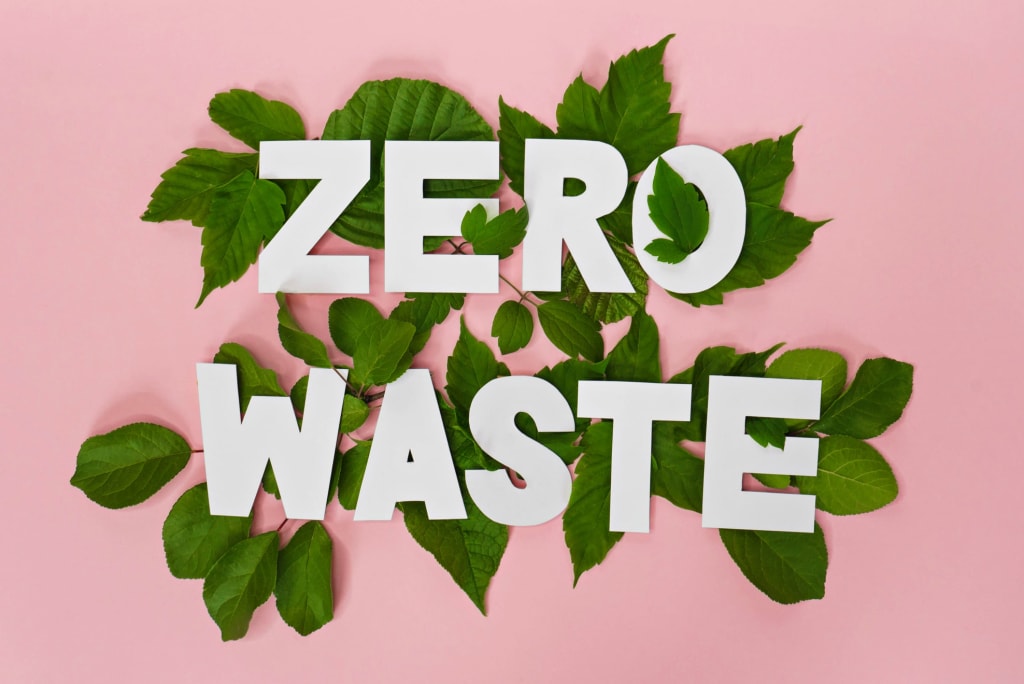Zero Waste with a Low Budget? Yes, You Can!
Everything I've learned in the last months being a zero waste wannabe with little to no budget.

Climate change is one of the hottest topics in recent times, and it is for obvious reasons: our planet is on fire, and natural life is dying under enormous quantities of plastic.
Even if I was conscious that over 70 percent of the pollution is caused by big multinationals and that I really couldn't do much about it on my own, I still knew that my actions had an impact and I was determined to do something about it: I really wanted to turn my daily actions into something healthy both for me and planet Earth. So where did I start?
Refuse, reduce, reuse, recycle
This is probably the most important step and it really doesn't need any investment. Refuse useless plastics: for example, ask for a strawless drink when having a good time at the bar. Reduce the number of plastic products you use by finding ecological alternatives (you'll find them later in this article!). Reuse what you already have instead of buying new products and wasting resources: consider repairing broken objects too. In the end, recycle what you couldn't avoid!
Metal straws
I guess most of the people already know: plastic straws are the worst. They turn easily into microplastics and they're a major danger to turtles' lives. That's why one of my first swaps was a couple of rigid stainless steel metal straws. I bought mine randomly at an airport and surprisingly they were really cheap (I paid for two metal straws and a straw cleaner no more than five Euros). Just like cutlery, they last forever and they're really useful even outside of the house. You can find really cheap options on Amazon.
Oral hygiene
This is one of the easiest and cheapest swaps: just grab a bamboo toothbrush (you can find it on Amazon) and make your own toothpaste: you'll need some tablespoons of coconut oil, some dried mint leaves and a teaspoon of baking soda. You're good to go!
Reusable bottle
When I was in Munich, wandering alone, I stopped at a shop window: for just seven Euros they were selling a beautiful stainless steel bottle. I knew I had to get it! By using it I avoided using many plastic bottles throughout the year. It is also really comfortable since it keeps cold drinks cold for 12 hours and hot drinks hot for 24 hours. Again, you can find some options on Amazon.
Menstrual cup and cotton pads
Ladies, this is for you. If you care about the planet, your personal hygiene and also about your savings, consider switching from your single-use tampons and sanitary towels to reusable pads and a menstrual cup. A menstrual cup is probably the cheapest option: I bought mine on Organicup for 20 Euros and I couldn't be happier. However, I only use it when needed, for example, if I'm around for a really long time or if I have to wear a swimsuit. (I might write an article about the menstrual cup, who knows!). Since I've always felt more comfortable with external protection, I decided to look up for some zero waste options and I wasn't disappointed as I found out about Eco Femme. I bought a full cycle kit which contains seven pads of different measurements and an organic carry pouch for your pads and panty liners. The kit costs 44 Euros, but thinking long term my wallet has been extremely grateful for this purchase.
Buy local
I often see zero waste gurus talking about bulk shops and plastic-free products, not realizing that common people often have a low budget and live in small cities where "bulk shops" don't really exist. So what did I do? I decided to buy fruit, vegetables, and eggs at my local farmer's. Everything they sell is 100 percent organic, and most importantly I can shop using my own crates and baskets: by doing this I can avoid tons of plastic bags. But if you can't reach a farmer's shop, you can still avoid some plastic bags at the supermarket too: for example, fruit with a hard skin don't really need a plastic bag for hygiene purposes (like bananas and oranges), so you really don't need to use that plastic.
Avoid food waste
We often forget about it but leaving something on the plate means a waste of resources and money. Just buy what you know you'll finish (don't go to the supermarket when you're hungry!) and always try to eat what've you've prepared even if you're feeling full. You'll be thankful you did, remember this isn't effortless!
These are the very first steps that will help you have a great impact on the planet and on your life. I really hope that this article has been useful! See you next time.
tags: #zerowaste #recycling #menstrualcup #plastic #pollution #bambootoothbrush #waste #ecology
About the Creator
Valeria Tramontana
young and strong






Comments
There are no comments for this story
Be the first to respond and start the conversation.